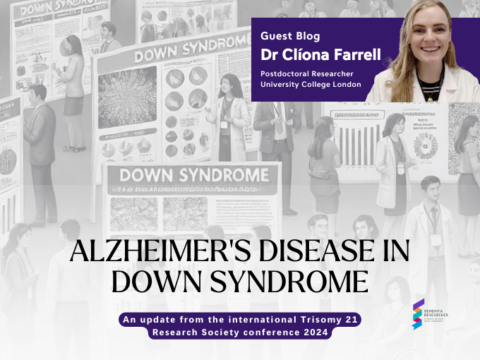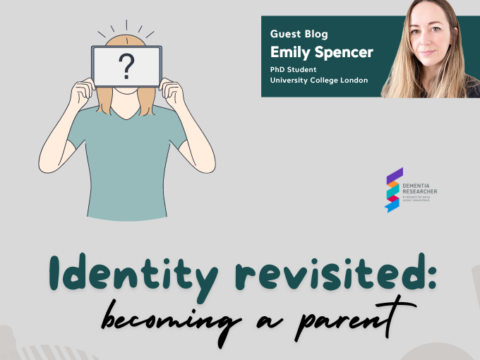The Meeting Centres Support Programme (MSP) was developed following a community needs assessment in the Netherlands over 25 years ago as part of a Professor Rose-Marie Dröes PhD; and provides community-based social, emotional and practical support for people living with dementia and their informal carers (people hereafter) to adjust to the change dementia brings. The programme is underpinned by the ‘Adaptation-Coping Model’ which assumes positive adjustments are essential for people to achieve a better quality of life and be able to live well in their communities following a diagnosis of dementia, resonating strongly with the concept of ‘social health’. These adjustments or changes are conceptualised as ‘adaptive tasks’ in the original Dutch model. More recently this ‘model’ has been translated into the UK context by people with lived experience – the ‘Adjusting to Change Model’ – while maintaining its theoretical origins in the stress-appraisal coping model of Lazarus and Folkman (1984) and the crisis model of Moos and Tsu (1977).

A Meeting Centre is a local resource, operating out of ordinary community buildings, that offers on-going warm and friendly expert support to people and families affected by dementia.
Meeting Centre (MC)
It is common for the terms MCSP and Meetings Centres to be used interchangeably, however these are two very different concepts, well for me anyway. Meeting Centres are the places where the MCSP is delivered, for example a community centre, church, or pub, which may not seem a stereotypical place for a health intervention, but it has been done. The idea is that communities can set up Meeting Centres in a flexible and adaptive way to meet local needs while adhering to the MCSP model. To do so the ‘Essential Features of a Meeting Centre booklet’ has been developed and supported the setting up of Meeting Centres across the UK. While it is no easy task to replicate a complex social intervention, and every Meeting Centre will be different, the booklet provides a sort of permutation of mechanisms, eleven in total, that are essential in the way Meeting Centres develop and operate. This work has been a way of drilling down what defines a Meeting Centre, a sort of criteria for validating the MCSP model. Meeting this criterion allows organisations “to use the Meeting Centres UK logo and be listed as a Meeting Centre operating as part of the UK Meeting Centres Support Programme.”
The UK Meeting Centres Support Programme (UK MCSP)
Right, so the UK MCSP is sort of national governing body for Meeting Centres, except unlike many public sector bodies is meeting its KPIs. It is a National Lottery funded project led by the Association for Dementia Studies with the overarching aim to “establish new Meeting Centres in different parts of the UK to work with their communities to support people and families directly affected by dementia.”. To date the project has provided a community of learning and practice, national reference group, resources, and training to support the development of new Meeting Centres internationally, and it has. There are now in as far afield as Japan and Singapore, and we are rapidly reaching the point of 30 officially recognised Meeting Centres in the UK. I would describe the UK MCSP as the epicentre of all things Meeting Centres, and enabling the model to attain international visibility and momentum.
The Worcestershire Meeting Centres Community Support Programme (WMCSP)
Lastly, the novel WMCSP. Novel because this is the first attempt to strategically scale up the provision of Meeting Centres across an area. Worcestershire County Council, England, announced in January 2020 £540,000 to support the setting up and running of nine across the County – the WMCCSP. How this translates into actual Meeting Centres opening is simple, although in reality of course it is a complex and messy process. In short, Voluntary and Community Sector organisations can apply for up to 60k funding over 3 years for each Meeting Centre, applications are reviewed by a multidisciplinary assessment panel and a decision is made and the applicant will be notified of the outcome. If they are successful, years 1 funding is released. A progress report based on the 11 Essential Features and finances should be submitted each year which will be reviewed by the assessment panel and a decision made regarding whether to continue funding.

Lack of post-diagnostic support can mean that people are not able to liver well in the community and people can end up in a crisis situation which is distressing for them and costly for health and social care.
Application for funding began in January this year, and to date six Meeting Centres have already opened in the county, which has been beautiful to experience. The scale of this intervention must be appreciated as it is extremely rare that proven effective interventions are scaled up, with most taking 17 years to translate into practice alone. It is hoped this funding will enable Worcestershire to become the first area to offer the MCSP to all citizens, creating equity of access, building local infrastructure and community resilience, and supporting people to ‘live well’ across the County. Therefore, only a portion of the WMCSP outcomes will be health related, but many will support individual, community and societal wellbeing and development. In this context a comprehensive evaluation is necessary. Enter Nathan’s PhD.
My research is concerned with understanding and measuring the social and economic value created and/or destroyed by the WMCSP using Social Return on Investment [SROI]. This is an outcomes-based measurement tool that will help us understand and quantify the social, environmental, and economic value Meeting Centres and the WMCSP are creating and/or destroying, also referred to as ‘social value’.
Despite effects of the pandemic the MCSP movement has remarkable momentum, and our vision of a Meeting Centre in every town could be realised. This research is timely to highlight and market the countywide approach to implementation, while also providing evidence that can develop research agenda and the support that MCSPs offer people.
If you would like to hear some more on this check out next month’s post where I will talk in detail about social value and how the approach fits with the research context.
Ta
Nathan
Author

Nathan Stephens
Nathan Stephens is a PhD Student and unpaid carer, working on his PhD at University of Worcester, studying the Worcestershire Meeting Centres Community Support Programme. Inspired by caring for both grandparents and personal experience of dementia, Nathan has gone from a BSc in Sports & Physical Education, an MSc in Public Health, and now working on his PhD.

 Print This Post
Print This Post




